Growling is an important form of canine communication.
It can indicate different messages, though most commonly it means that your dog is feeling threatened, protective, or she is attempting to scare off an impending confrontation.
But if that’s the case, why do dogs also growl when they’re playing?
We’ll dig into this and other issues of canine growling here, so you can better understand your pet and the manner in which she communicates with you!
Key Takeaways: Why Does My Dog Growl at Me?
- Growling is a natural behavior that dogs use to communicate a variety of feelings. You’ll want to take note of the behavior, but — for safety’s sake — you never want to punish your dog for growling.
- Dogs growl for a variety of reasons, ranging from pain to anxiety to protection to play. Identifying the reason your dog is growling is vital to addressing any potential underlying issues.
- You can address some growling triggers yourself, but others will require professional help. This is especially true of dogs who bite or snap in conjunction with growling.
Why Do Dogs Growl in the First Place?
Growling is a way for your dog to convey her feelings.
It is one form of canine communication, and it will be accompanied by other body signals that can help you to indicate the reason your dog may be growling.
Growling may (or may not) indicate forthcoming aggressive behaviors, but it’s important to understand that the growl itself is not necessarily an act of aggression.
In fact, growling is great because it gives us fair warning that your dog is feeling overwhelmed. I’d much rather a dog growl at me than simply go straight for a bite, wouldn’t you?
Accordingly, there is nothing wrong with a growl.
It’s simply a way for our dogs to convey how they are feeling.
And it’s important that we give our dogs the freedom to do so. Most dogs want to avoid conflict, and a growl can be a way for your dog to warn you or another dog that she is feeling unsafe before a conflict occurs.
You never want to punish a dog (or a human) for communicating their feelings.
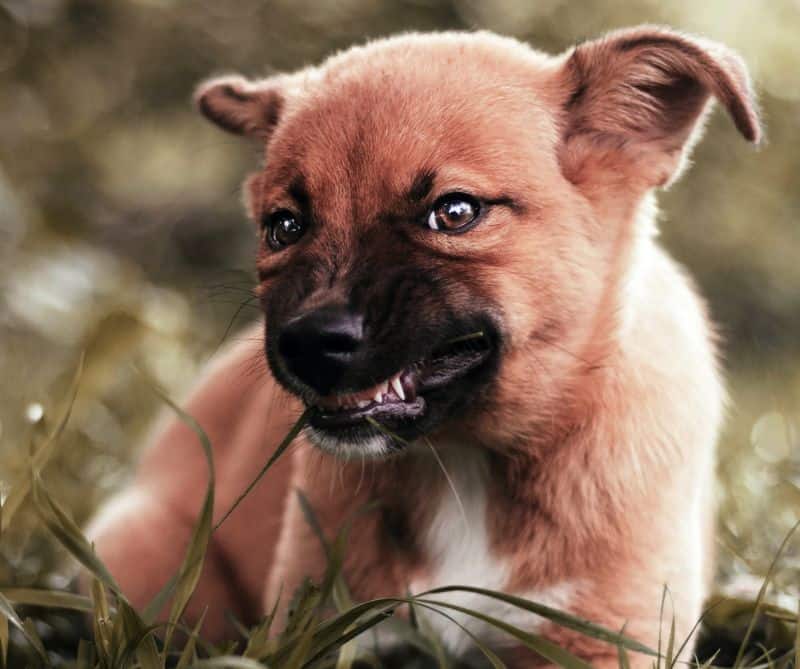
Reasons Your Dog May Be Growling at You
There are several different reasons your dog may growl at you. A few of the most common include:
Your Dog Is Afraid
When a dog is feeling fearful, it is not uncommon for her to growl.
If she feels there is a threat looming — particularly if she is feeling as though she has little control over her environment — a growl is a way to diffuse a potential threat.
For example, if she is in an enclosed space or on a leash, she does have the option to flee. Accordingly, she has no alternative but to issue a threat.
This is a primal instinct that we all have when we are seriously scared.
This is also why some dogs tend to be more aggressive and reactive on leash than off-leash.
Your Dog Is in Pain
Pain is a potential trigger that a lot of people tend to miss, when trying to figure out why their dog is growling.
This is partially because our dogs are so stoic and may not show obvious signs of pain. But sore hips or an injured paw, among other things, may mean your dog is extra cautious around people who approach her for fear of a painful interaction.
It is especially important to consider pain with older dogs, as they are more susceptible to things such as canine arthritis. These kinds of ailments often come on slowly and may go undetected for some time before diagnosis.
So, if your pooch starts suddenly growling at seemingly normal everyday situations, it is a good idea to have a wellness check with your vet to rule out any medical concerns.
Your Dog Is Trying to Play
Not all growling is associated with negative feelings. Many dogs will growl when they play, too.
Play often mimics many behaviors that we often consider to be aggressive, like growling and biting. But it’s totally normal and will be accompanied by a relaxed body, play bows, a relaxed, “smiling” mouth, and other play signals.
Dogs also exhibit an element of self-control when growling or biting during play. The bites are not meant to cause damage and the growls will not be accompanied by other threat displays, like bared teeth.
Your Dog Is Tired
Dogs who are tired may growl because they just want to be left alone. You know that saying, “let sleeping dogs lie?”
It’s good advice!
No one likes to be startled or disturbed while they’re sleeping. It’s ideal to have a space where your pupper can choose to go that is her safe zone — a space where she is confident no one will bother her while she rests.
A crate is an excellent choice for this, but your dog’s safe space could also be a favorite bed or a quiet corner of the house.
Remember, just because you love your dog and she loves you doesn’t mean you should have full reign to annoy her (even with hugs) while she is sleeping. She’s not being an alpha, she’s just trying to have some peace and quiet!
Your Dog Is Experiencing Anxiety
Dogs who are anxious have a much lower threshold than relaxed, confident dogs, and they may scare more easily. This anxiety can often trigger growling.
When we are feeling on edge, we may quicker and easier to startle and react more overtly. Your dog is no different.
There are a number of different things that can trigger anxiety, and you’ll need to consider her behavior, body language, and the circumstances to identify the root cause.
Once you’ve identified the root cause, you can begin treating her anxiety.
Your Dog Is Resource Guarding
Resource guarding is actually a fairly normal behavior for our dogs – to an extent.
After all, we resource guard all the time.
We lock our cars and our homes. We label our lunch in the office lunchroom and store valuables safely (not that labeling our lunch always helps — but that’s another problem for another time).
But obviously it can become problematic in some dogs who are very worried or upset when people come near the things they value, like food, toys, beds, or even beloved people.
Growling in these cases can lead to biting.
This is particularly true for those who get bad internet advice that encourages owners to take an item from your dog to get her used to it.
This is terrible advice and will almost certainly make the problem worse or even cause resource guarding to happen in the first place.
At the end of this video, you can see that this poor dog’s owners are deliberately trying to provoke this reaction.
We are horrified that they’d inflict this kind of mistreatment on the pooch, but this video provides a great example of growling that results from resource guarding. Ultimately, we felt it provided enough value to our readers to include it anyway.
Your Dog Is Being Protective
Dogs may also growl when being protective.
And when your dog is being protective of you, someone in your family, or simply their territory (or something else such as livestock), her growl is a warning: “Leave my people (or stuff) alone or there will be trouble!”
In some cases, this is actually a variation of resource guarding – except you are the resource that is being guarded!
These types of growls may be seen more often in certain guarding breeds, such as the Malinois or Great Pyrenees, for example. But even the gentlest toy poodle may growl when being protective.
Your Dog Is Just Feeling Grumpy
We are not always on our game. Sometimes we are overtired, not feeling well, or just want to be alone. Your dog has these moments too, and that’s okay.
Everyone — even your doggo — is entitled to have bad days!
The best way to attribute your dog’s growls to grumpiness is simply to rule out all of the other potential causes and — as always — consider the circumstances.
Can Your Dog’s Growling Lead to a Bite?
A bite is often preceded by a growl, but a growl doesn’t always lead to a bite.
In other words, a bite hardly ever just happens out of the blue.
Our dogs exhibit a progression that starts with subtle signs of stress, like tongue flicking, whale eyes, and freezing, to more explicit warnings such as growling or snarling, before eventually resorting to a bite.
Unless, however, these warnings have been ignored or punished.
This is where a real problem sets in! Past punishment of warning growls can teach your dog that biting is her only option — and you don’t want that!
In these cases, bites may occur with relatively little warning.
So, when trying to figure out your dog’s behavior, it’s important that we always look at the whole picture:
- What caused the growl to occur?
- What was your dog doing at the time?
- What was the body language of your dog before, during and after the growl?
- What was the outcome?
- What was the human or other animals’ behaviour before, during, and after the growl?
These questions can help us to determine why the growl occurred and what type of growl is occurring.
For example, if the growl occurred when you were playing tug, her body was loose and relaxed, her movements were bouncy before during and after the growl, play just ended and she came back to you to ask you to grab a hold of the rope again, then it’s pretty clear that she is just having some fun.
But, if your dog was enjoying a bully stick, froze, lowered her head as you approached, growled as you sat down close to her, and didn’t relax until you moved away, this may be indicative of resource guarding behavior.
If you are ever unsure why your dog is growling or are concerned for her emotional wellbeing or the safety of other people or animals, you should contact a qualified behavior consultant or veterinary behaviorist.
Can’t find a good trainer in your area?
We’d recommend contacting Journey Dog Training.
They offer a number of long-distance training solutions that may help address your dog’s growling. Plus, as a K9 of Mine reader, you can claim enjoy a 10% discount (see the link above for details).
How Do You Stop Your Dog from Growling at You?
The most important misconception about growling is that it’s bad. That it is a ‘misbehavior,’ which needs to be corrected.
It absolutely depends on the dog and the situation, but punishment is never a good response to growls.
To quote one of the most popular sayings in the progressive and evidence-based dog training community:
Punishing the growl is like taking the batteries out of the smoke alarm.
By punishing the growl, subsequent situations may lead directly to a bite with little or no warnings at all.
I’ll take that warning, please and thanks!
So, what should you do if your dog growls at you? Glad you asked…
Stopping Your Dog’s Growling: A Step-by-Step Solution
Every growling dog is an individual, and every situation is unique. But, you’ll generally want to take the following steps anytime your dog growls at you:
1. Contact your vet.
The first thing you’ll want to do is rule out any potential health problems that may be triggering your dog to growl. This is especially important if your dog’s behavior has changed suddenly.
2. Discover the context of the growl.
Once you’re sure that your pup has a clean bill of health, you can begin considering other reasons that triggered her to growl.
Be sure to consider each of the remaining possibilities:
- Fear
- Play
- Fatigue
- Protection
- Resource guarding
- General grumpiness
If, for example, your dog’s growling occurred when your child hugged her while she was sleeping on her bed, she may be feeling grumpy or sleepy.
Alternatively, if your dog is growling in the presence of food, she may be resource guarding. Or, if she growls at you while bringing you her toy and wiggling her butt, she’s likely just growling as a part of play.
Just consider the circumstances and her body language to figure out why she’s growling.
3. Implement the necessary changes to correct the problem.
Once you’ve identified the reason your dog is growling, it is time to start trying to fix it. You’ll just need to apply a sensible solution based on the reason your dog is growling.
If, for example, the growl followed your child hugging Fluffy while she was sleeping on her bed, it’s clear that your child needs to be educated on how to be mindful and respectful of your pup and her space and provide a safe zone for her to rest without fear of being rudely woken.
Alternatively, if your dog seems to growl whenever you walk by her while eating, you’ll need to work on addressing her resource-guarding issues.
Just be sure to solicit professional help if you can’t readily identify the trigger for her growling, or you don’t know how to fix the problem.
It is also wise to seek professional help if your dog’s growls precede air-snaps or actual biting.
It isn’t always necessary to put an end to your dog’s growling. Growling associated with play, for example, is perfectly acceptable (and pretty cute too).
***
Dogs growl, it’s a part of their genetic make-up. But the reasons they growl will vary from one dog to the next, as well as in different circumstances.
Some growl more than others because they have a lower tolerance for stressful situations. Some dogs are quite vocal when they play, others are not. Dogs are individuals.
Just be sure to figure out the reasons your dog is growling (solicit professional help if need be), and work on addressing any issues that may be present.
How does your dog communicate that she is uncomfortable, unhappy or worried? Let us know in the comments below!


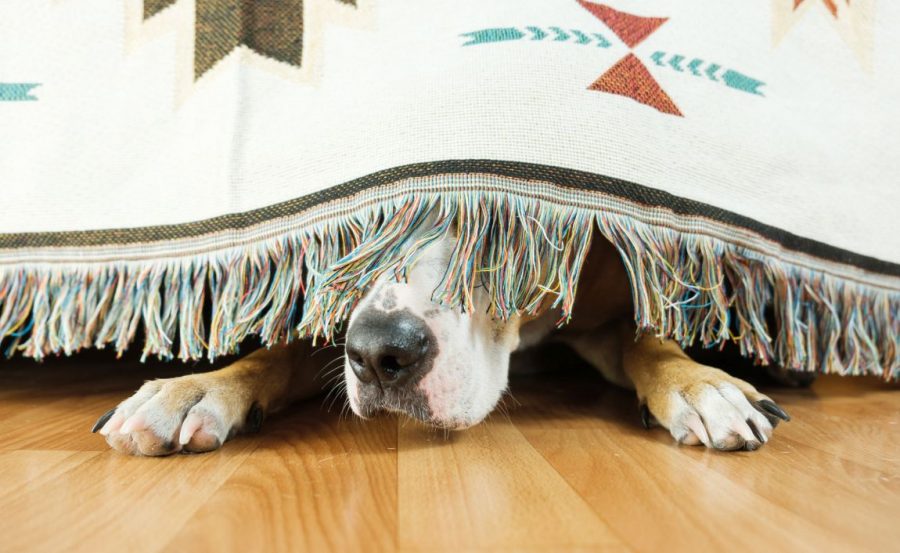


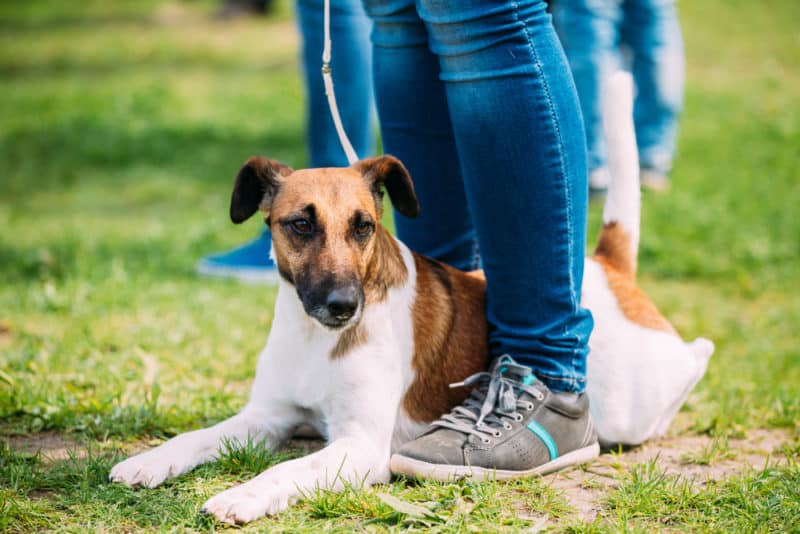
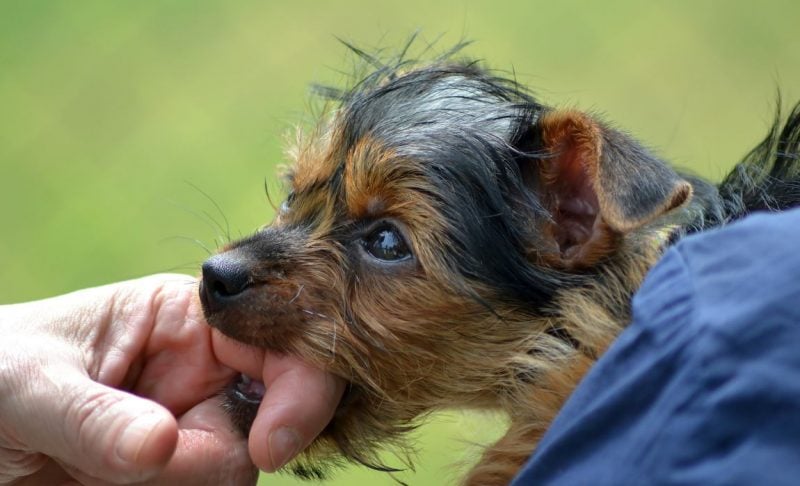

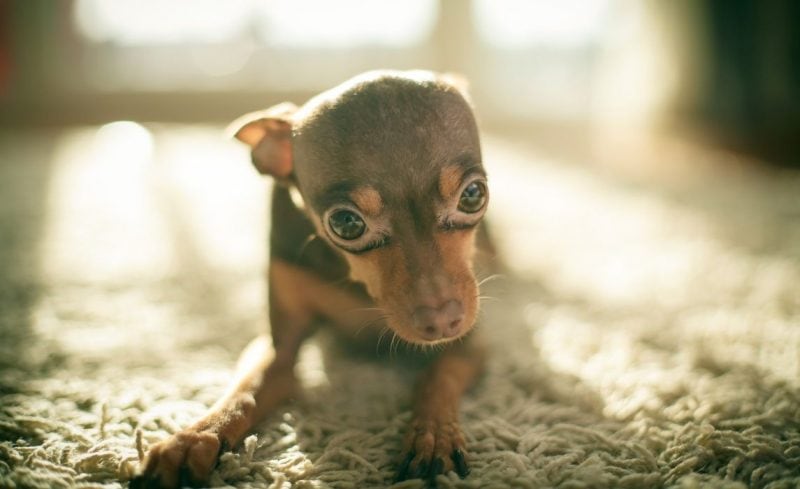
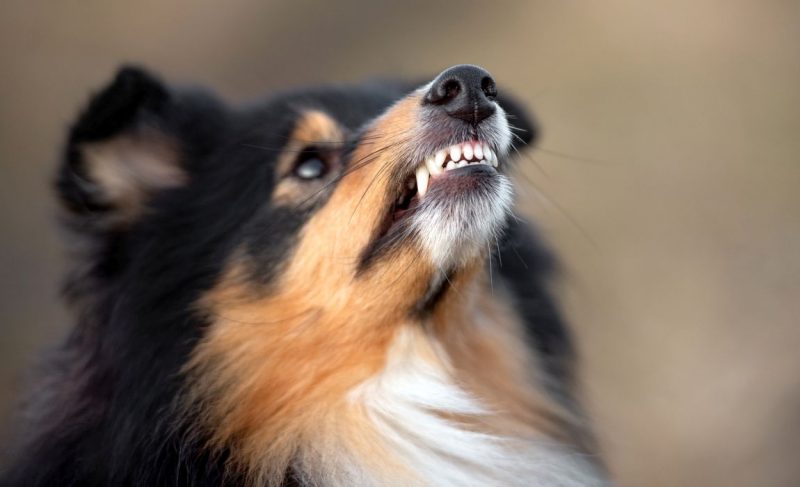
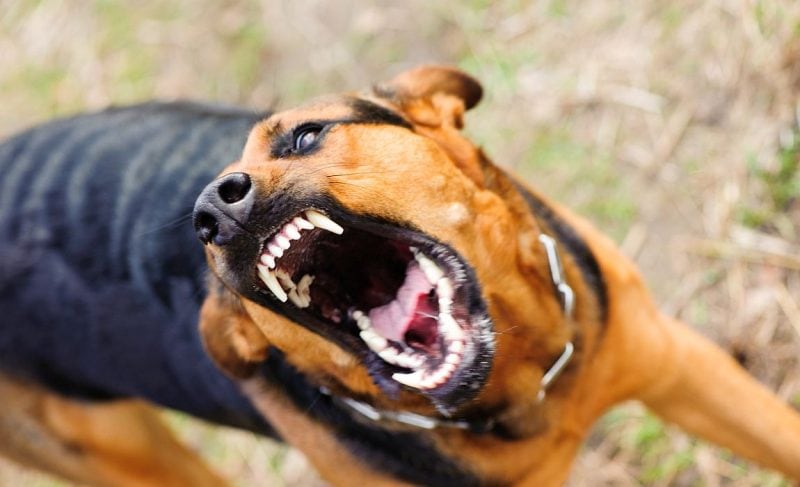
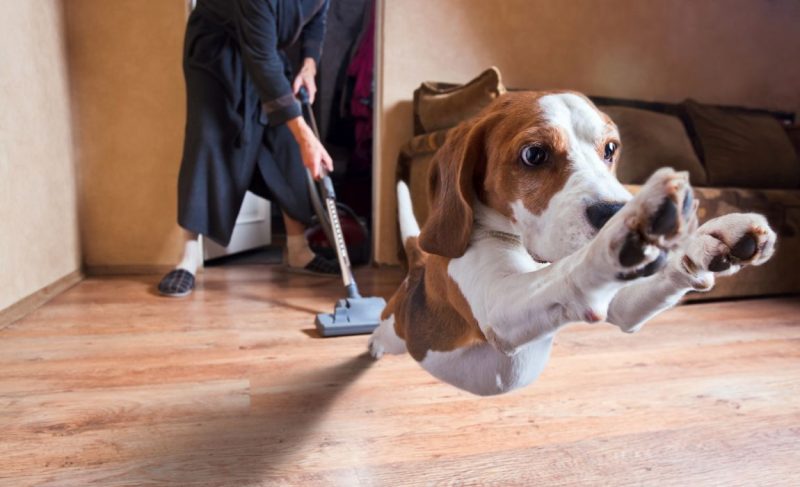

Leave a Comment